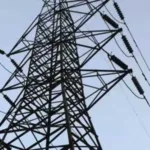ISLAMABAD: In a bid to end the ongoing strike by Gilgit-Baltistan traders, the federal government on Wednesday agreed to exempt imports routed through the Sost Dry Port from key federal taxes — provided the goods are for local consumption and meet strict eligibility conditions.
Announcing the agreement at a press conference, Minister for Power Sardar Awais Ahmad Khan Leghari stated that the decision followed talks between the federal government, the GB government, and regional business leaders.
Gilgit-Baltistan Chief Minister Haji Gulbar Khan, Senator Saleem Mandviwalla, and trader representatives were also present. A formal agreement was signed and released to the media.
The tax exemptions apply to sales tax, advance income tax, and federal excise duty collected by the Federal Board of Revenue (FBR), but only for goods imported via the Silk Route Dry Port (SRDP) in Sost and consumed within Gilgit-Baltistan. The initiative aims to support regional trade and facilitate economic development.
Leghari said Prime Minister Shehbaz Sharif had approved the relief package after a committee led by him finalised recommendations within 45 days. He noted that longstanding policy and tax issues had stalled trade through the Sost port, and the relief package was designed in consultation with all stakeholders, including local traders and the GB leadership.
Imports through Sost dry port will be exempt from sales tax, advance income tax, and FED
Conditions and limitations
Under the agreement, only goods declared for local consumption in GB — brought in by locally registered firms owned by indigenous residents — will qualify. The GB government must authorise these firms, and all imports must be accurately declared to Pakistan Customs, with no misrepresentation. The exemption will apply only to items listed under a predefined list of positive tariff lines.
The total annual value of tax exemptions has been capped at Rs4bn. Quotas for each product line will be based on assessed customs values, and relief will be granted on a first-come, first-served basis through the Customs system.
Imports that exceed quota limits or violate conditions will not qualify for tax exemption, even if pre-approved. In the event of shortages or emergency requirements, trade bodies may request additional quotas or special concessions from federal authorities through the GB government.
The tax exemption scope will be reviewed every two years, or earlier if necessary, and may be modified or suspended if port operations are disrupted or if goods are smuggled out of the GB region. The government reserves the right to withdraw relief for items found in commercial quantities outside GB.
Additional measures
A custom tribunal will hear Sost-related cases as needed, and a Deputy Director of Valuation will visit GB on an annual basis. The terminal operator will review cases of delay, detention, or demurrage on stuck consignments.
Goods imported in violation of the Import Policy Order will be confiscated after due legal process.
The minister emphasised that the tax relief is part of broader efforts to boost trade and address the longstanding concerns of the GB business community, which has protested against what they called unfair taxation and regulatory hurdles.
Published in Brackly News, September 25th, 2025
Discover more from Brackly News
Subscribe to get the latest posts sent to your email.


